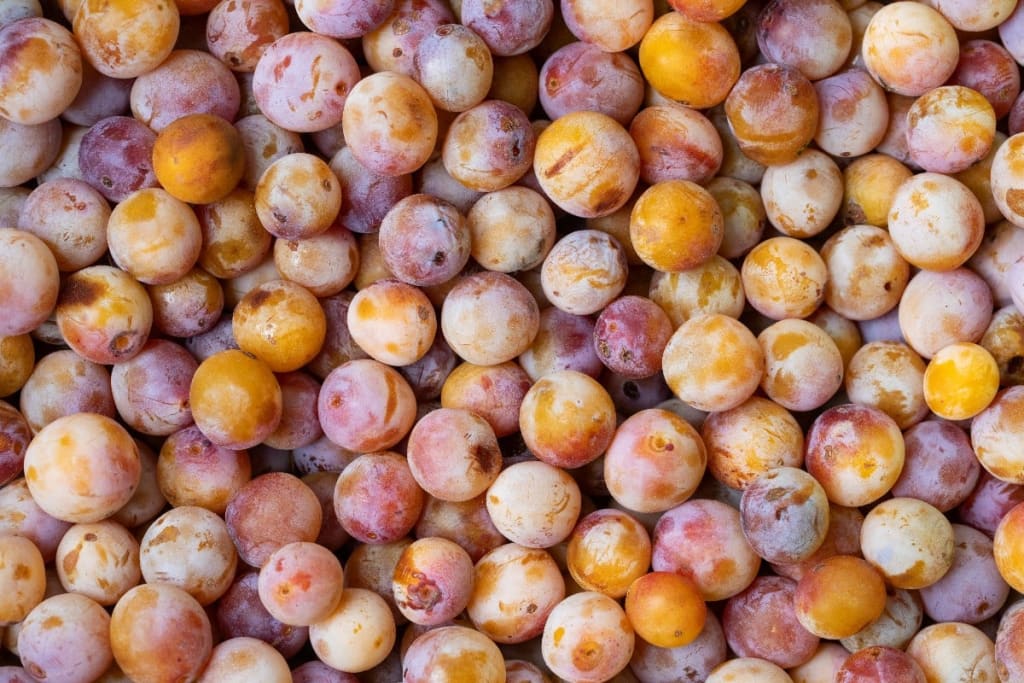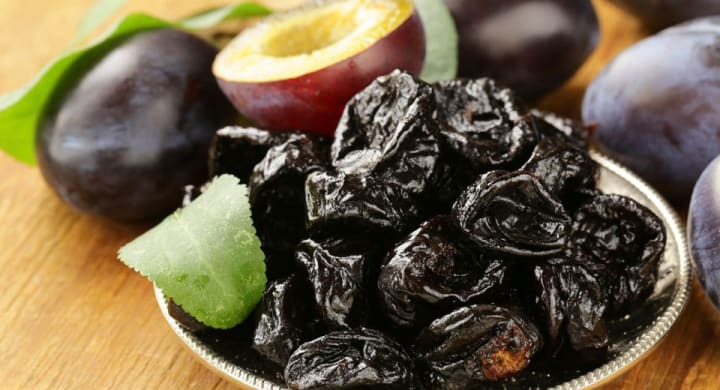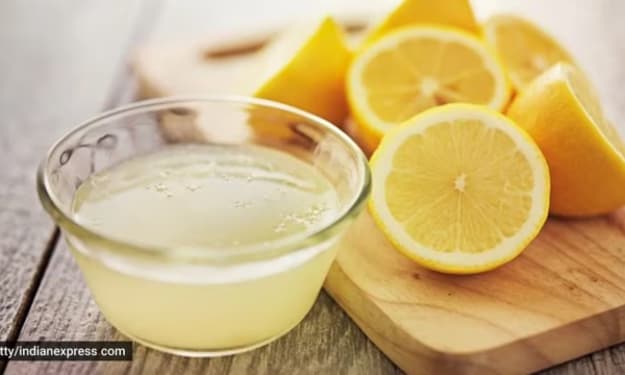One kind of activity and one type of diet have been shown to strengthen bones.
These easy lifestyle changes may help delay the onset of some of the negative consequences of ageing on the body.

Consuming one specific meal on a daily basis in addition to doing a simple activity for two minutes will help strengthen your bones and delay the effects of ageing. During the production of a series on how to age healthily, the bones were not as robust as they might have been.
According to the author of the Fast800 diet, the most effective strategy to prevent osteoporosis, a medical disease that is characterised by weak and brittle bones, leading to an increased risk of fractures, is to acquire a sufficient amount of calcium and vitamin D through your food, as well as via exposure to the sun or vitamin D supplements.
You should consider increasing your consumption of prunes in addition to the more apparent sources of calcium, such as dairy products and vegetables with leafy greens.
Eating five to six prunes on a daily basis was shown to enhance bone density in a research that was published in the American Journal of Clinical Nutrition in October of 2017. The study included 235 older women. The consumption of prunes, which contain anti-inflammatory chemicals, may reduce the rate of bone resorption, according to one idea.
daily activity, with special emphasis on a research that shown how strengthening hip bones may be accomplished in only two minutes each day by hopping.
Prunes

Prunes are plums that have been dried out for storage reasons. Prunes are also known as dried plums. Prunes have a chewy consistency, a flavour that is both savoury and sweet, and a colour that is deep reddish-brown. They are also sometimes referred to as dried plums.
Prunes, with their crinkled skin and wrinkled flesh, are hardly the most attractive fruit in terms of their appearance. Unfortunately, the majority of individuals believe that the sole benefit they provide is relief from constipation. This is not the type of reputation that the vast majority of fruits seeks for themselves.
On the other hand, prunes have a lot of reasons to be proud of themselves when it comes to their nutritional profile. A diet that does not include this inconspicuous little fruit with its wrinkled face is missing out on some potential health benefits. Here are some of the many significant advantages to one's health that eating prunes may provide.
1. One of the best known sources of vitamin K
Prunes are a really good food choice for anybody looking to get their vitamin K intake. Each prune has 5.7 micrograms of vitamin K, which is equivalent to seven percent of the daily dose of 80 micrograms recommended for persons who eat a diet consisting of 2,000 calories. Vitamin K is a fat-soluble vitamin, making it a very important nutrient. It is essential to the process of blood clotting, contributes to the maintenance of healthy bones, and controls the proliferation of cells.
2. Excellent for the health of the bones
Are plums, often known as prunes, healthy for your bones? Yes! Research conducted on animals demonstrates that eating prunes may prevent and even cure bone loss. Prunes are now the subject of research to see whether or not postmenopausal women may experience similar benefits from eating them. In one study, one group of women consumed 100 grammes of prunes on a daily basis, which is around ten prunes, whereas the other group consumed an equivalent number of dried apples. The prune group had significantly more bone density than the other groups. According to the findings of several studies, eating prunes may aid in preventing the disintegration of bone.
3. An outstanding resource for copper
In addition to being a good source of copper, prunes are also quite nutritious. Copper is an essential component in a wide variety of organs and systems throughout the human body. Copper is necessary for the production of red blood cells, the maintenance of healthy nerve cells, the support of a healthy immune system, the formation of collagen, a protein that contributes to the formation of your bones and tissues, the protection of cells from harm, the absorption of iron into your body, and the conversion of sugar into energy.
4. Consuming prunes regularly is beneficial to one's cardiovascular health.
The amount of pectin found in prunes is rather high. Consumption of pectin has an effect on cholesterol levels in the blood and also contributes to the regulation of glucose levels in the blood. In addition to this, it assists in the elimination of harmful substances from your body, such as lead and mercury. It has been shown via research conducted on mice that consuming prunes slows the advancement of atherosclerosis, a disease that raises the probability of having a heart attack.
5. A nutritious food that is rich in potassium
Additionally, prunes are an excellent food choice for their high potassium content. Potassium is an important mineral that is required by all of the body's tissues. It is also referred to as an electrolyte because it carries a modest electrical charge that activates a variety of cell and neuron processes.
The most important function that potassium serves in the body is assisting in the maintenance of appropriate fluid levels inside our cells. The quantities of sodium, which is potassium's counterpart, are what keep the fluid levels outside of cells regular. The ability of muscles to contract is another benefit of potassium, as is the maintenance of normal blood pressure.
6. Contributes to the avoidance of magnesium-related nutritional deficiencies
Have I told you this before? According to some estimates, ninety percent of all people on earth have magnesium deficiencies.
Magnesium is a vital element that is involved in more than 300 different enzymatic processes in the human body. It is essential for human health. In addition to its many other roles, it plays a role in the maintenance of healthy muscle and nerve function, the control of blood pressure, and the promotion of healthy immunological function.
When it comes to providing magnesium, a normal Western diet fails terribly, mostly due to the fact that this essential element is lost through the processing and refining procedures used in contemporary times to prepare food. The intense agricultural practises used today have also contributed to a reduction in the amount of nutrients found in crops. The nutritional content of vegetables has decreased significantly since the 1950s, according to a research that was conducted in 2004 and published in the Journal of the American College of Nutrition. The study discovered that the drop in nutritious content was as high as forty percent.
Loss of appetite, nausea, headache, muscular cramps and spasms, low energy and weariness, weakness, blood sugar imbalance, sleep issues, PMS, irritability, inability to deal with stress, and constipation are some of the warning indications of low magnesium.
7. An excellent source of the vitamins B1, B2, B3, B5, and B6
Prunes are an excellent source of vitamins B1 (thiamin), B2 (riboflavin), B3 (niacin), B5 (pantothenic acid), and B6 (pyridoxine). In addition, prunes contain a significant amount of potassium. The body metabolises fats and proteins with the assistance of all of the B vitamins, which are also referred to as the B-complex vitamins. Additionally, the body converts carbs into glucose, which is then utilised to create energy.
Vitamin B6 is a nutrient that supports the maintenance of normal brain function and has been shown to alleviate some of the signs and symptoms of depression. Multiple studies have shown an association between depressive symptoms and low blood levels and intakes of vitamin B6, particularly in older persons who are at a high risk for vitamin B insufficiency. This is especially true in those older adults who have a history of drinking excessive amounts of alcohol.
8. Beneficial to one's visual faculties
The fruit with the quirky, wrinkled face has more cause for celebration thanks to recent developments. Prunes are an excellent source of vitamin A, which is not only necessary for maintaining healthy eyesight but also has the potential to lower one's risk of developing some forms of cancer. On the other hand, persons who are vitamin A deficient are more likely to have dry eyes and night blindness.
Prunes are a fruit that really need to be given more attention.
9. The health benefits of prunes include their powerful antioxidant properties
Prunes have an even greater level of antioxidant activity than blueberries do, despite the fact that blueberries already have a high level. This is due to the fact that prunes contain a remarkable amount of antioxidants that are beneficial to the health of cells. Antioxidants are substances that may help repair the damage that cells sustain as a result of the normal oxidation process that occurs every day. These cell-protective substances may have an effect on the ageing of the brain due to the fact that antioxidants help protect brain cells from harm. Phenolics are the name given to the substances found in prunes that are responsible for the fruit's powerful antioxidant action.
10. Eating prunes may help relieve symptoms of constipation.
Of course, prunes also assist improve digestive health by stimulating sluggish intestines and lowering the risk of constipation, so eating prunes is a win-win. Simply eating a few prunes on a daily basis is all that is required.
The use of prunes and their related phrases
If you want to get the advantages of prunes without sacrificing convenience, just slice them up into little pieces and stir them into your bowl of hot or cold cereal. You may enhance the flavour of brownies, quick bread, and homemade trail mix by adding prune chunks. Make cookie dough and muffin batter more interesting by substituting prune pieces for raisins. To make a healthier alternative to raisins, try using prune pieces as a topping for pizza or in chicken salad. Plum pieces are a delectable alternative to use in place of raisins in any recipe that calls for the dried fruit. Did you know that prunes contain more than double the amount of antioxidant activity found in raisins? Because of this, they make an excellent replacement.
The conclusion, to put it simply
Consuming prunes regularly may be beneficial, but you should avoid eating too many of them. Because they contain a lot of natural sugar, eating an excessive amount of them may not be a good idea for persons who are controlling the amount of carbohydrates they consume. Consume them, keeping in mind that moderation is the key to reaping the advantages.
If you are currently taking blood-thinning medication, you should check with your physician before eating prunes to see whether or not it is safe for you to do so. The vitamin K in prunes has the potential to impede the effectiveness of the drugs you are taking.
About the Creator
Jacob Damian
Whether you're looking to learn something new, explore different perspectives, or simply satisfy your curiosity, I can offer you insights and perspectives that you may not have considered before. With my ability to process and analyse.






Comments
There are no comments for this story
Be the first to respond and start the conversation.